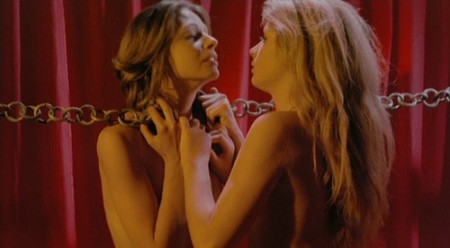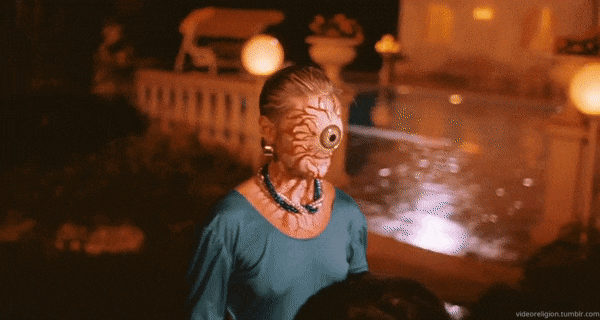ProstheticConscience
Check dein Limit
That time again. In the last year here, we've had fires, record heat, flooding to the degree that this city was completely cut off from the rest of Canada for a while...what else is there in store for us here on the loony left coast? Raining frogs? Boils? Locusts? While we wait for whatever the next Biblical plague is to befall us, we continue to watch movies. Because why not.
Last thread way above 1k, last page here:
Movies: - Last Movie You Watched and Rate It | Cinema at the End of the World Edition
-------------------------------------------------------------
Ichi the Killer
with seriously f***ed up Japanese people.
The mean, mean streets of Shinjuku are awash in prostitutes, drugs, pimps, psychotic Yakuza henchmen, and one very, very messed up hitman called Ichi. He may have bladed boots with which he can (and does) kick people literally in half, but he's very unhappy. He's either desperately smiling or crying his eyes out, whether witnessing sexual assault, murder or various other horrors. His latest job has been to splatter a Yakuza boss all over his apartment, but by the next day all traces of the atrocity have vanished, along with a good chunk of the gang's money. Enter Kakihara, a flamboyant, bleached blonde S&M freak/Yakuza lieutenant who's extremely pissed off that his boss just disappeared. Superiors and underlings alike are all quite rightly terrified of this guy, and believe me, you do *not* want him after you. But the whole situation is being manipulated by a shadowy outsider for shadowy outsider reasons. Blood, ultraviolence, graphic torture, paraphilia and other fun stuff happens. Yeah. Wow.
This one really sticks with you. Banned in several countries, and it's not hard to understand why. Take a Japanese sadist, strap him to a chair Clockwork Orange-style and make him watch Quentin Tarantino movies for a few weeks, and you'd come up with something like this if you let him direct a movie. You're right up in there for the torture scenes. Also has weirdly incongruous cartoonish, slapsticky moments, but graphic violence is the order of the day. Not really sure if you'd call it a good movie, but it's certainly an impactful one. Definitely not for the squeamish.
On Prime. Don't say I didn't warn you.

Barely a human resources violation to this guy.
Last thread way above 1k, last page here:
Movies: - Last Movie You Watched and Rate It | Cinema at the End of the World Edition
-------------------------------------------------------------
Ichi the Killer
with seriously f***ed up Japanese people.
The mean, mean streets of Shinjuku are awash in prostitutes, drugs, pimps, psychotic Yakuza henchmen, and one very, very messed up hitman called Ichi. He may have bladed boots with which he can (and does) kick people literally in half, but he's very unhappy. He's either desperately smiling or crying his eyes out, whether witnessing sexual assault, murder or various other horrors. His latest job has been to splatter a Yakuza boss all over his apartment, but by the next day all traces of the atrocity have vanished, along with a good chunk of the gang's money. Enter Kakihara, a flamboyant, bleached blonde S&M freak/Yakuza lieutenant who's extremely pissed off that his boss just disappeared. Superiors and underlings alike are all quite rightly terrified of this guy, and believe me, you do *not* want him after you. But the whole situation is being manipulated by a shadowy outsider for shadowy outsider reasons. Blood, ultraviolence, graphic torture, paraphilia and other fun stuff happens. Yeah. Wow.
This one really sticks with you. Banned in several countries, and it's not hard to understand why. Take a Japanese sadist, strap him to a chair Clockwork Orange-style and make him watch Quentin Tarantino movies for a few weeks, and you'd come up with something like this if you let him direct a movie. You're right up in there for the torture scenes. Also has weirdly incongruous cartoonish, slapsticky moments, but graphic violence is the order of the day. Not really sure if you'd call it a good movie, but it's certainly an impactful one. Definitely not for the squeamish.
On Prime. Don't say I didn't warn you.

Barely a human resources violation to this guy.
Last edited:





